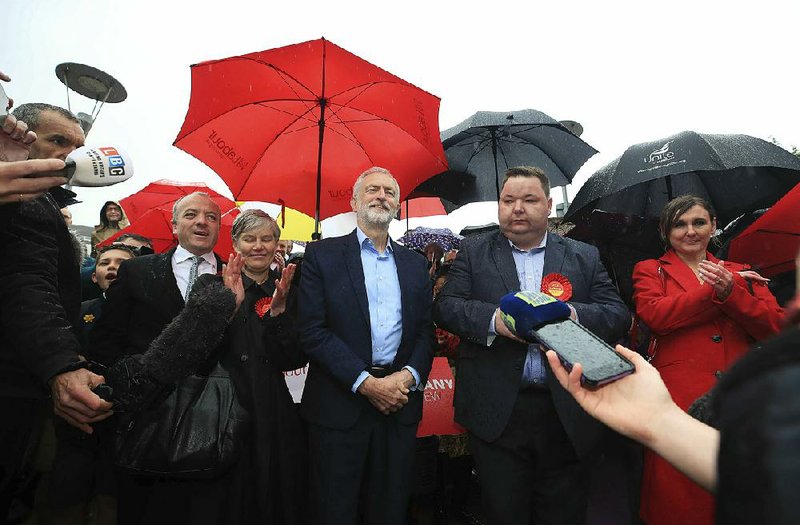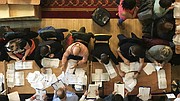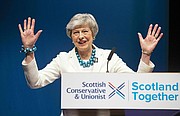LONDON -- Britain's dominant political parties took a hammering in local elections as Brexit-weary voters expressed frustration over the country's stalled departure from the European Union, according to updated results Friday.
Almost three years after U.K. voters narrowly decided in a referendum to leave the EU, the date and terms of the EU departure remain uncertain after months of gridlock in Parliament.
The results from Thursday's local elections suggested voters blamed both the governing Conservative Party and the opposition Labor Party for the impasse.
With tallies in from almost all of the 259 local authorities that had positions up for grabs, the Conservatives had dropped more than 1,200 seats, about one-quarter of the ones it held.
Left-of-center Labor Party, which had hoped to increase the number of members serving as local councilors, lost more than 70 positions.
The Conservatives previously had members filling about 60% of the more than 8,000 seats that were contested in local races in England and Northern Ireland.
Elections didn't take place in London, Scotland or Wales.
Conservative Prime Minister Theresa May said the elections as a whole carried a "simple message" for both the Conservative and Labor parties: "Just get on and deliver Brexit."
An audience member at a Conservative conference in Wales had another suggestion. The party member heckled May, shouting "Why don't you resign? We don't want you."
The Conservatives and Labor are bracing for worse results in the European Parliament elections in three weeks.
Britain was due to have left the EU well before the European vote, but the exit was postponed until Oct. 31 because May was unable to get lawmakers to approve her divorce deal with the EU.
With the country still split over leaving the EU, the rejection of both main parties reflected frustration from both pro-Brexit voters and supporters of Britain's EU membership.
"The people that voted to remain blame us for leaving and the people that voted to leave blame us because we haven't left yet," said Conservative politician Tim Warren, who lost his seat on Bath and North East Somerset Council in southwest England.
"I think they want to punish us for a lack of action in government," Warren said.
Many Labor members blamed the party's poor showing on its ambivalent position on the EU divorce. The party supports the decision to leave the bloc -- to the frustration of many Labor members and lawmakers, who are largely pro-EU -- but opposes May's divorce deal.
Talks between Labor and May's government on finding a compromise have so far failed to reach an agreement.
Scottish Conservative leader Ruth Davidson said voters' message "seems to be 'a plague on both your houses' to the Conservatives and the Labor Party, who they see as a block on finding some sort of resolution to Brexit."
Labor leader Jeremy Corbyn said there was now a "huge impetus" for every lawmaker to break the logjam.
"An arrangement has to be made. A deal has to be done. Parliament has to resolve this issue," Corbyn said Friday.
The party with the biggest surge was the centrist, pro-EU Liberal Democrats, which gained more than 500 council seats to double its total. The Green Party and independents also made gains in the races that focused on local issues such as garbage collection.
"Voters have sent a clear message that they no longer have confidence in the Conservatives, but they are also refusing to reward Labor while the party prevaricates on the big issue of the day: Brexit," said Liberal Democrat leader Vince Cable.
A Section on 05/04/2019



